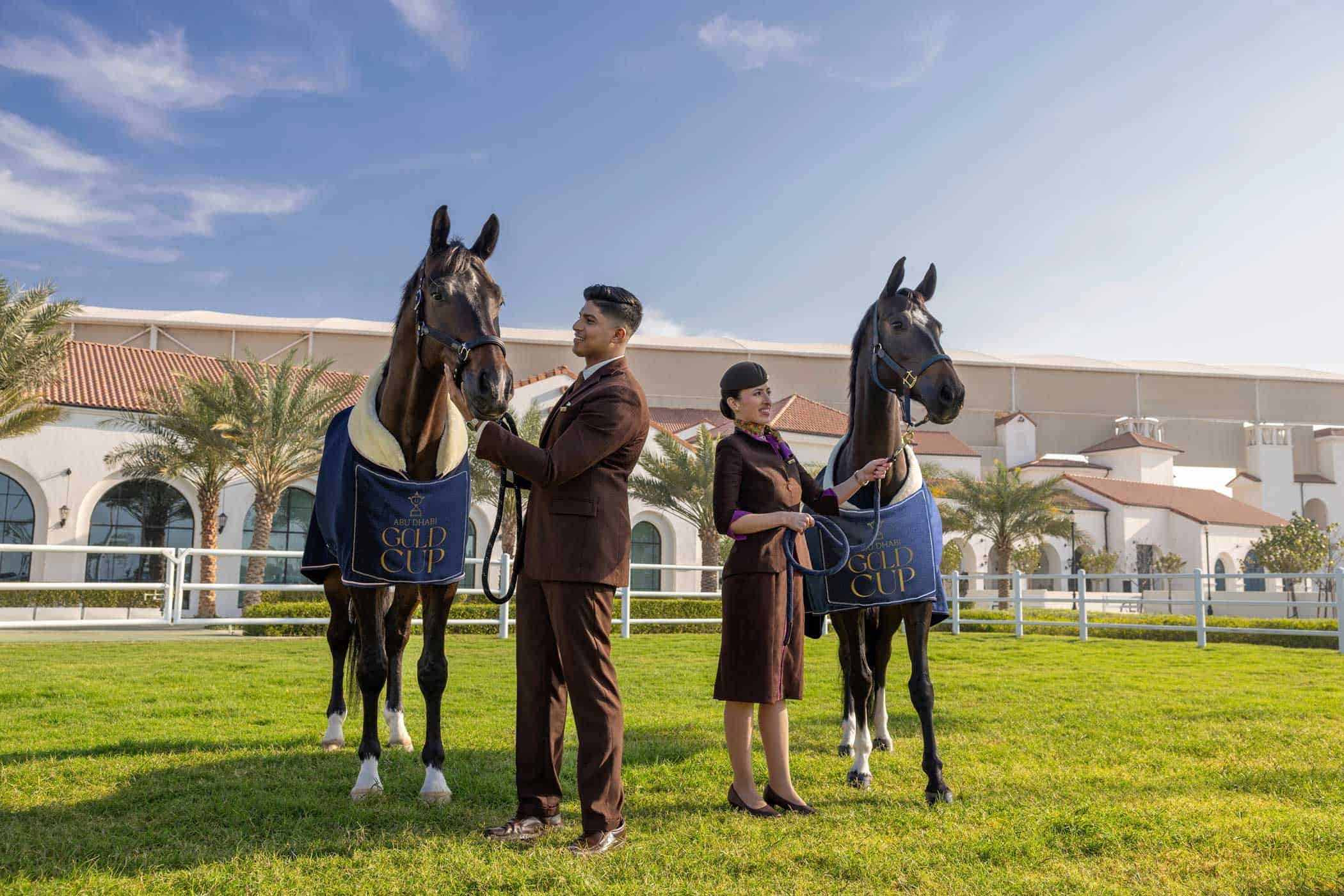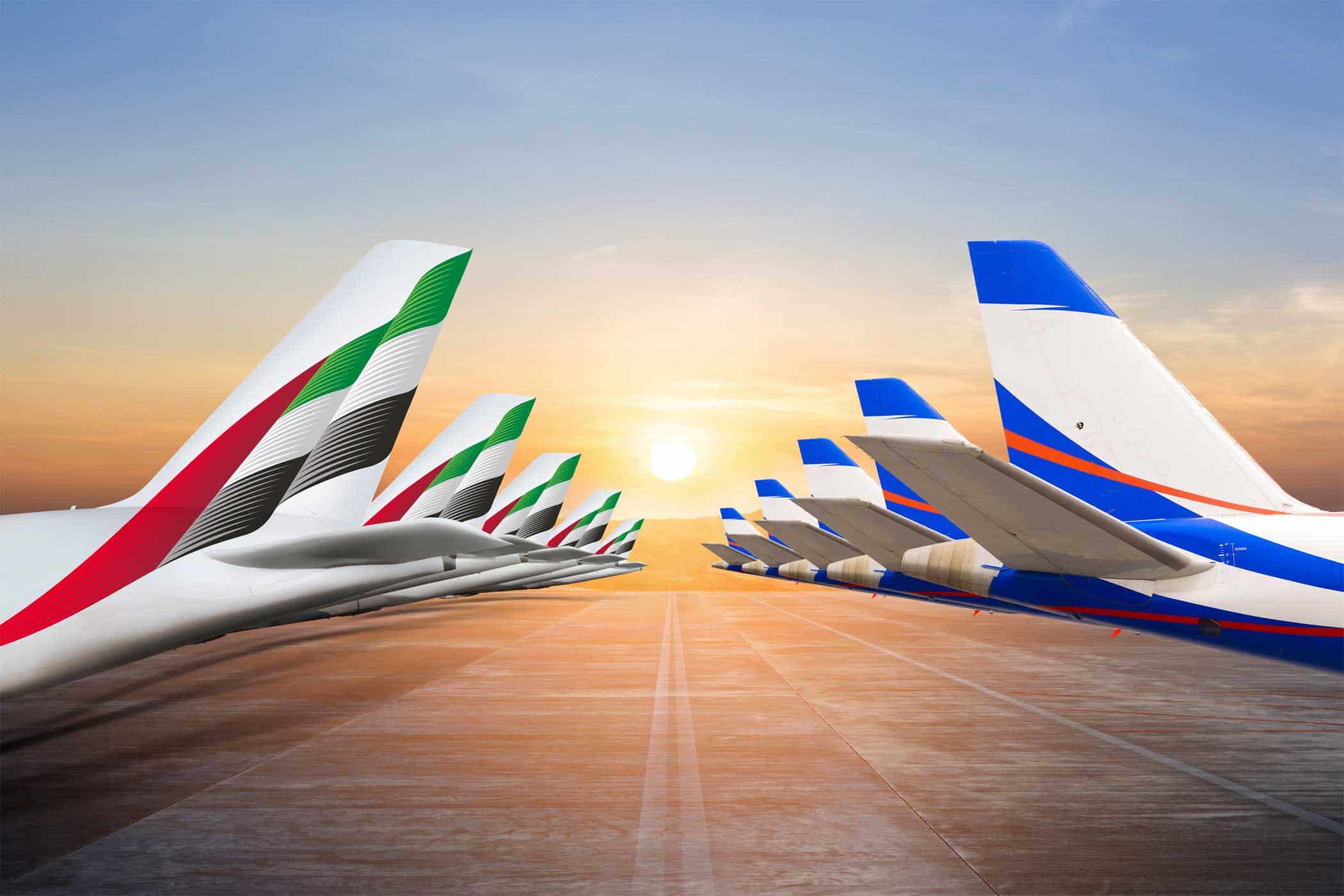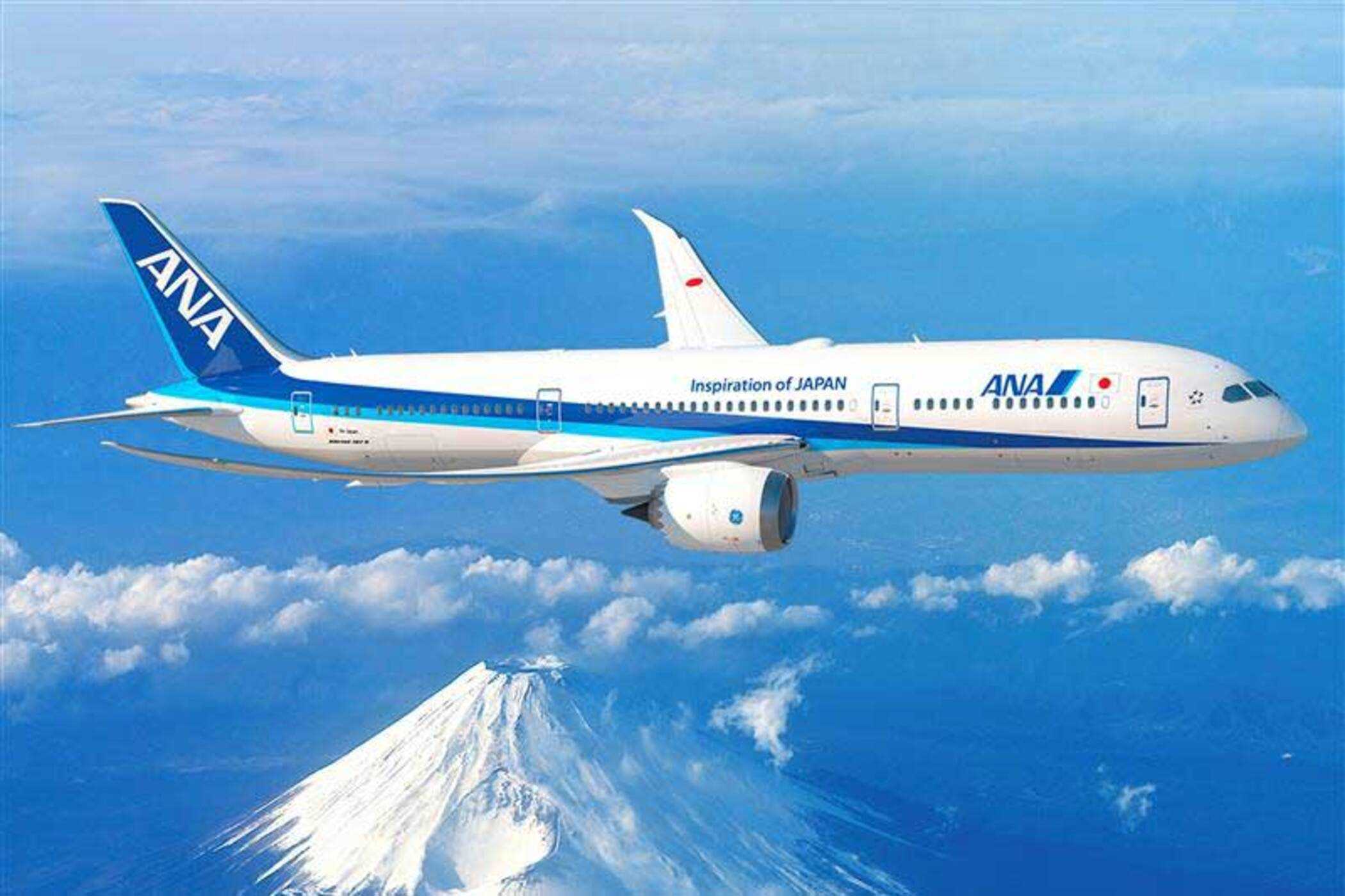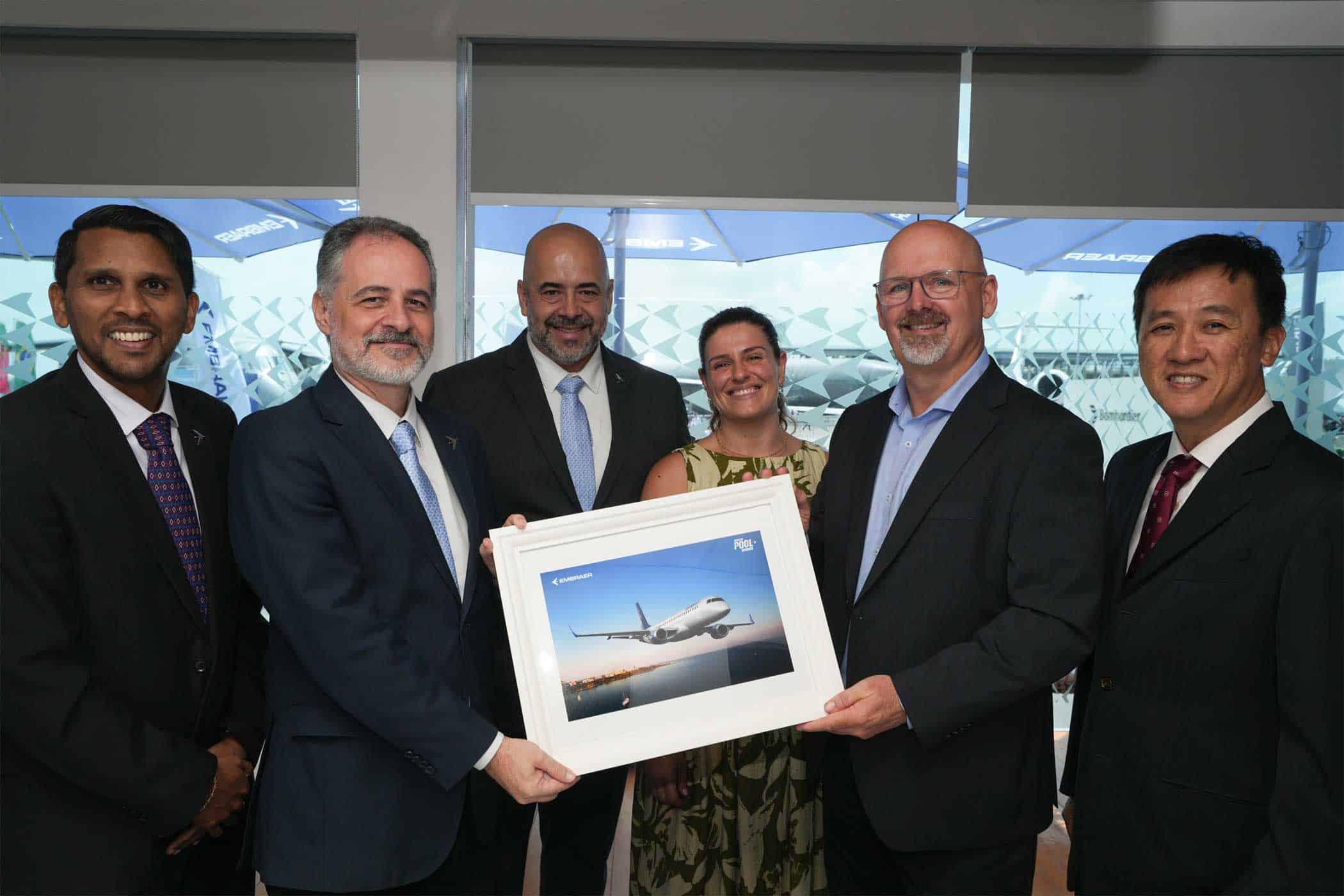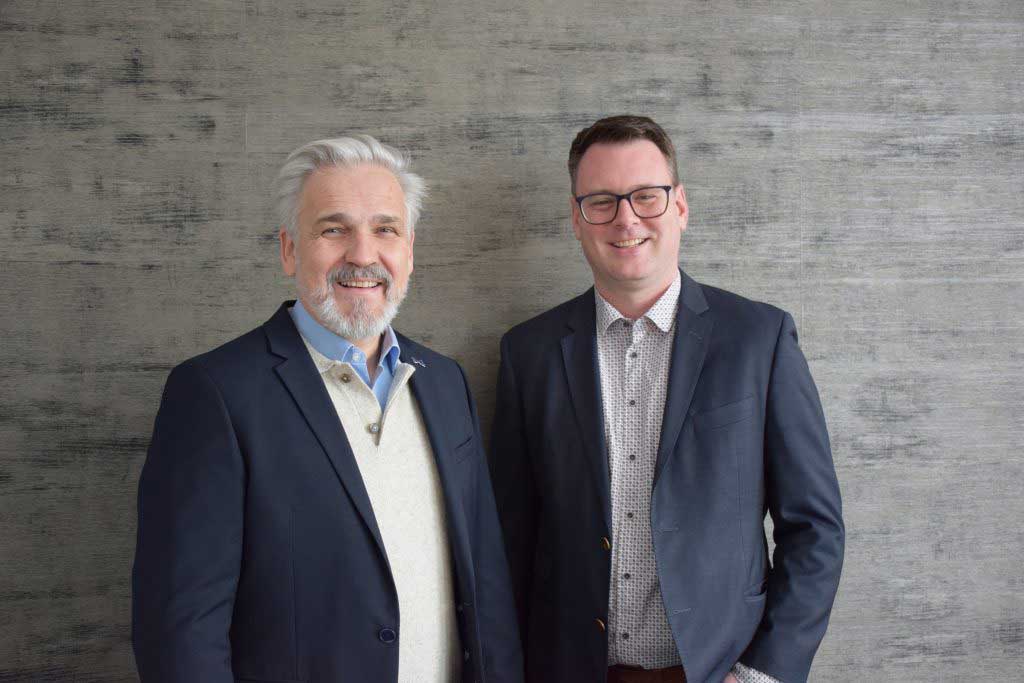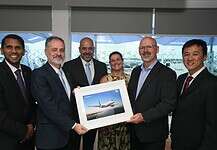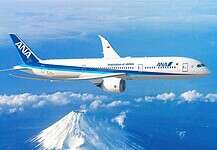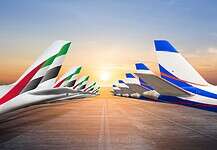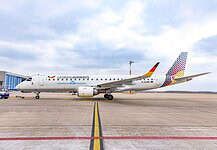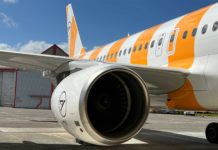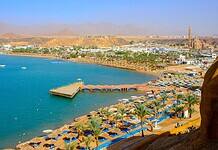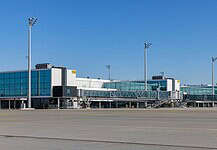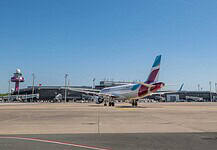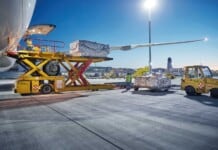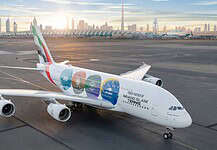This site is also available on:
Deutsch
Emirates Group announced a new record half-year result, posting a pre-tax profit of AED 12.2 billion (US$3.3 billion) for the first six months of the 2025-26 financial year. This marks the third consecutive year that the group has achieved a record profit for the reporting period.
After taking income tax into account, the group’s profit after tax amounted to AED 10.6 billion (US$2.9 billion), representing a 13 percent increase year-on-year. The group’s strong operating performance is reflected in robust EBITDA of AED 21.1 billion (US$5.7 billion), which is three percent higher than the AED 20.4 billion (US$5.6 billion) reported for the same period last year.
Emirates Group’s revenue for the first six months of the financial year was AED 75.4 billion (US$20.6 billion), a 4% increase compared to AED 70.8 billion (US$19.3 billion) in the same period of the previous year. The Group closed the first half of 2025-26 with a record cash position of AED 56 billion (US$15.2 billion) on September 30, 2025, compared to AED 53.4 billion (US$14.6 billion) on March 31, 2025. It was able to draw on strong cash reserves to meet business needs, including financing new aircraft deliveries and servicing existing debt obligations. Emirates Group also paid the remaining AED 2 billion (US$545 million) in dividends to its owner, out of the AED 6 billion (US$1.6 billion) reported for the 2024-25 financial year.
His Highness Sheikh Ahmed bin Saeed Al Maktoum, Chairman and Chief Executive of Emirates Airline and Group: “The Group has once again delivered an outstanding performance, exceeding our half-year results from the same period last year to achieve a new record profit for the first half of 2025-26. I am delighted that Emirates has maintained its position as the world’s most profitable airline for this half-year period. This achievement is primarily due to the continued strong demand and growing customer preference for our product and services, which have driven revenue growth and profitability.”
“Emirates and dnata have invested billions to continuously improve our products and services, launch new offerings, optimize our operations through innovation and technology, and support our employees who ensure the safety and satisfaction of our customers. All of this is deeply embedded in our DNA. The Group’s strong profitability allows us to continue these investments and further develop our proven business models in line with Dubai‘s growth as a global city of choice for talent, businesses, and travelers.”
“Global demand for air transport and travel services remains robust despite geopolitical events and economic concerns in some markets. We expect this demand to continue for the remainder of the 2025-26 financial year and look forward to expanding our capacity and thereby increasing our revenues as new A350 aircraft join the Emirates fleet and new facilities at dnata become operational,” His Highness Sheikh Ahmed continued.
To support the expansion of the Emirates Group’s operational and business activities, the workforce grew by three percent compared to March 31, 2025, reaching a total of 124,927 employees as of September 30, 2025. Both Emirates and dnata are currently conducting recruitment campaigns to meet their future staffing needs.
Emirates Airline
Emirates has further expanded its route network and connectivity via its Dubai hub. In the first half of the 2025-26 financial year, new routes were launched to Da Nang, Siem Reap, Shenzhen, and Hangzhou. As of September 30, its passenger and cargo network comprised 153 airports in 81 countries. Emirates also strengthened its network connectivity with the addition of 28 weekly scheduled flights to Antananarivo, Johannesburg, Muscat, Rome, Riyadh, and Taipei. To offer customers even more connectivity options, Emirates entered into codeshare and interline agreements with partners Air Seychelles, Condor, and Aurigny in the first six months. Between April 1 and September 30, Emirates took delivery of five new A350 aircraft and expanded its offerings with additional Business Class and Premium Economy seats. During this period, a total of 23 aircraft (6 A380s and 17 Boeing 777s) underwent Emirates’ current retrofit program, a total investment of five billion US dollars, and received a completely modernized cabin interior. This enabled Emirates to offer its latest cabin products on even more routes, including Emirates’ industry-leading Premium Economy Class. As of the reporting date, the newest cabin class was offered on routes between Dubai and 61 cities.
At Dubai Airport, Emirates First launched a luxurious service with exclusive private check-in for First Class passengers and Platinum Skywards members. In the first six months of the fiscal year, Emirates accelerated the rollout of its retail strategy with the opening of new travel concept stores in Accra, Bangkok, Geneva, Jakarta, Mauritius, Osaka, Seoul, and Singapore.
Emirates continued its environmental initiatives, refueling with Sustainable Aviation Fuel (SAF) where possible and feasible, including at 37 airports. In April, Emirates joined the Aviation Circularity Consortium (ACC), a network of organizations dedicated to building a circular economy for aviation and creating new pathways to accelerate decarbonization through high-quality circularity in the global supply chain.
In the first half of the 2025-26 financial year, Emirates made significant investments to increase its global brand visibility. Emirates signed multi-year sponsorship agreements and became a Platinum Partner of FC Bayern Munich, the Official Main Sponsor of Real Madrid Basketball, and a Premium Partner and Official Airline Partner of the Investec Champions Cup and the European Professional Club Rugby Challenge Cup. Emirates extended its partnership with the Association of Tennis Professionals as a Premier Partner and Official Airline of the ATP Tour until 2030, as well as its shirt sponsorship of Olympique Lyon until 2030.
Total capacity increased by five percent to 31.3 billion available tonne-kilometers (ATKM) in the first six months of the year due to expanded flight operations. Available seat-kilometers (ASKM) increased by five percent, while passenger-kilometers (RPKM) rose by four percent, with an average passenger load factor of 79.5 percent, compared to 80 percent in the same period last year. Emirates carried a total of 27.8 million passengers between April 1 and September 30, 2025, representing a four percent increase compared to the same period last year.
Emirates SkyCargo transported 1.25 million tonnes in the first six months, a 4% increase compared to the same period last year. Customer demand for Emirates SkyCargo’s specialist products and its excellent route network of full freighters and underdeck cargo capacity remained strong. However, freight revenues declined by 6%, driven by weaker demand in some market segments due to tariff concerns. Emirates SkyCargo expanded its capacity with the delivery of three new Boeing 777 freighters. In April, the cargo division launched Emirates Courier Express, an innovative product that leverages the power of Emirates’ global route network to offer businesses door-to-door express shipping services.
Emirates solidified its position as the world’s most profitable airline for the first half of 2025-26. Emirates’ pre-tax profit for the first six months reached a new record of AED 11.4 billion (US$3.1 billion), compared to AED 9.7 billion (US$2.6 billion) in the same period last year. Emirates’ net profit after tax was AED 9.9 billion (US$2.7 billion), representing a 13 percent increase year-on-year.
Emirates’ revenue, including other operating income, reached AED 65.6 billion (US$17.9 billion), a 6% increase from AED 62.2 billion (US$16.9 billion) in the same period last year. This record revenue is attributable to continued strong travel demand across all markets and customer preference for Emirates’ products and services, particularly its premium cabins. Emirates’ operating expenses (including fuel) increased by 4% in line with increased flight operations. Fuel remains the largest component of the airline’s operating expenses at 30%. Driven by customer demand and increased flight operations in the first six months, Emirates’ EBITDA remained strong at AED 19.7 billion (US$5.4 billion), a 3% increase from AED 19.1 billion (US$5.2 billion) in the same period last year.
Emirates Flight Catering increased its revenue from external customers by 13 percent to AED 555 million (US$151 million) and delivered 7.7 million meals (a two percent increase) to 116 airlines during this period. Emirates Leisure Retail acquired the remaining 25 percent stake in Air Ventures LLC in the USA, thereby securing full ownership of the company, which operates retail and food service outlets at airports.
dnata
The air traffic services provider recorded strong growth in the first six months of fiscal year 2025-26, as dnata continued to expand its operations in cargo and ground handling, catering, retail, and travel services. During the first half of the fiscal year, dnata’s airport services and catering and retail divisions secured several significant new contracts and expanded their customer base across all international business areas. This demonstrates dnata’s ability to meet the diverse needs of its airline customers with high safety standards and consistently high-quality products and services. dnata continued to make strategic investments in its business to respond to customer needs and capitalize on market opportunities. The company announced plans to deploy 800 new ground handling machines worldwide in 2025, valued at US$110 million, to further enhance operational performance and ensure a steady supply of modern, lower-emission equipment that supports dnata’s growth and sustainability goals.
Other highlights in the first half of 2025-26 include the launch of the airport hospitality brand marhaba in the United Kingdom; a €3 million minority stake in WonderMiles, an advanced NDC-enabled booking platform to strengthen dnata Travel’s corporate offering; and the divestment of its 75% stake in Super Bus, a UAE sightseeing tour operator. dnata also entered into its first major sports sponsorship partnership, signing a three-year deal with Dubai Basketball to become a founding partner of the city’s first professional basketball franchise.
dnata achieved a new half-year sales record, exceeding the three billion US dollar mark for the first time during the reporting period. Revenue, including other operating income, increased by 13 percent to AED 11.7 billion (US$3.2 billion), compared to AED 10.4 billion (US$2.8 billion) in the same period of the previous year. Total profit before tax amounted to AED 843 million (US$230 million), representing a 17 percent increase year-on-year. Profit after tax was AED 697 million (US$190 million), a 22 percent increase year-on-year. EBITDA reached AED 1.4 billion (US$372 million), five percent higher than the previous year’s figure of AED 1.3 billion (US$354 million), highlighting the company’s strong operating performance.
dnata’s airport operations continue to be the largest contributor to revenue, generating AED 5.5 billion (US$1.5 billion), a 15 percent increase year-on-year, driven by continued growth in airline customer business, particularly in Italy, Australia, the UK, and the UAE. Across all business segments, dnata handled 450,903 aircraft by 15 percent, supported by new operations at Rome Fiumicino Airport, and handled 1.59 million tonnes of cargo, a 3 percent increase attributable to additional cargo volume from UAE operations.
dnata’s flight catering and retail divisions contributed AED 4.1 billion (US$1.1 billion) to revenue, an 11 percent increase. This growth was driven by significant expansion in the retail business as part of the division’s strategy, increased catering production in Australia and the UK to meet customer demand, and the positive impact of revised contracts to account for increased delivery costs. The total number of meals served declined slightly by 1 percent year-on-year to 60 million. dnata’s travel division contributed AED 2 billion (US$538 million) to revenue, an 11 percent increase compared to AED 1.8 billion (US$483 million) in the same period last year. The division recorded a total underlying transaction value (TTV) of AED 5 billion (US$1.4 billion), up from AED 4.5 billion (US$1.2 billion) in the prior-year period, representing a 9 percent increase.

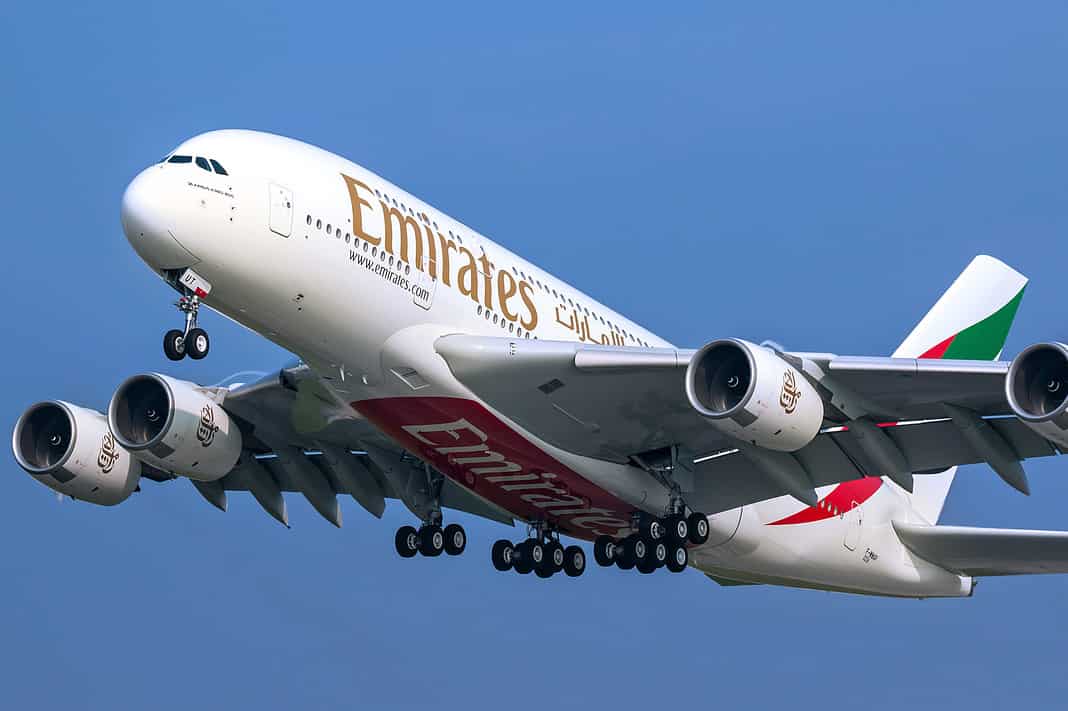
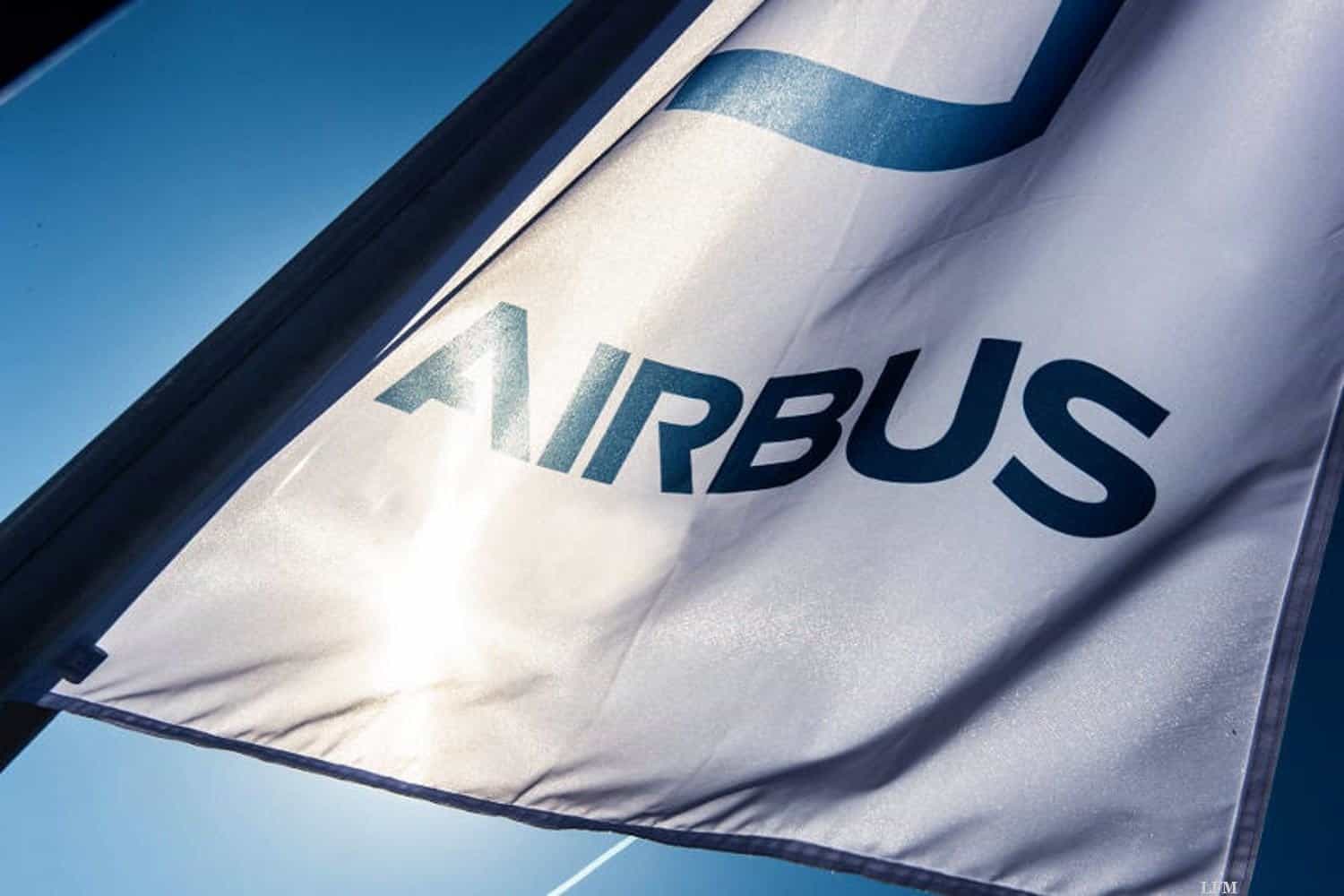 Share buyback program at Airbus SE: strategies, impacts and framework conditions
Share buyback program at Airbus SE: strategies, impacts and framework conditions IndiGo orders Airbus A350: New impetus for the long-haul flight market
IndiGo orders Airbus A350: New impetus for the long-haul flight market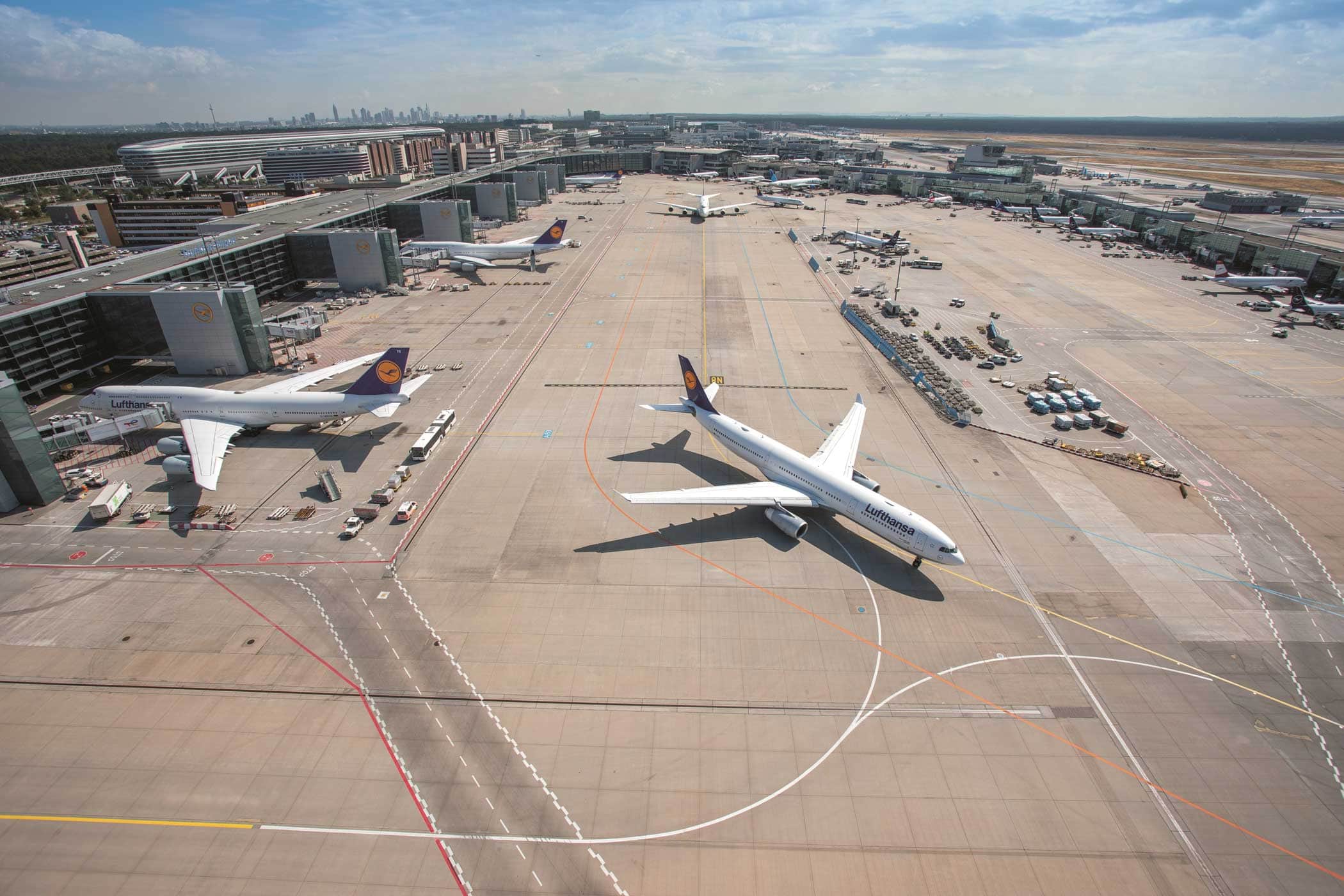 Growth at Frankfurt Airport and international affiliated airports
Growth at Frankfurt Airport and international affiliated airports Cooperation between Hahn Airport and Aktau International Airport
Cooperation between Hahn Airport and Aktau International Airport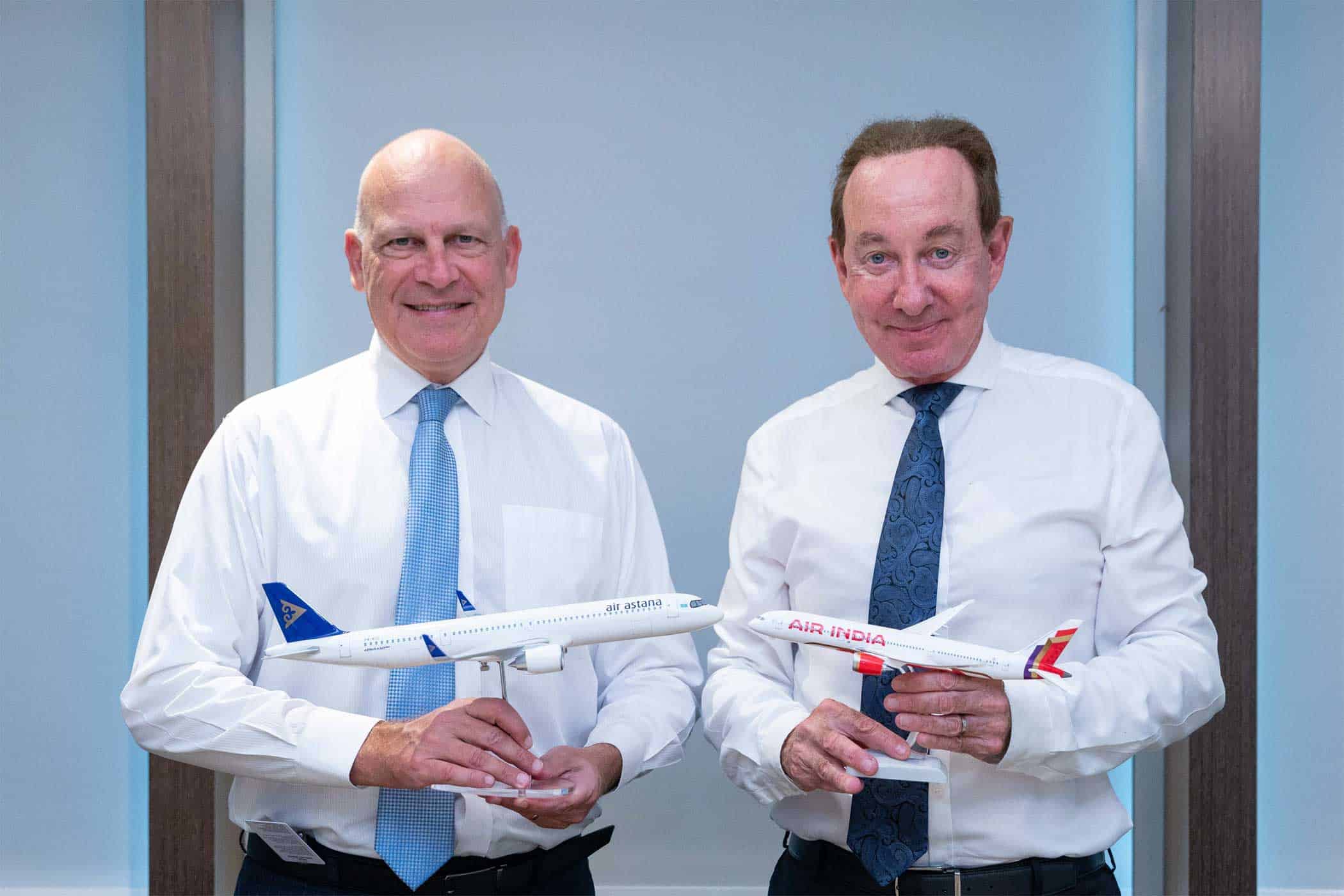 Codesharing: Air Astana and Air India sign codeshare agreement
Codesharing: Air Astana and Air India sign codeshare agreement
